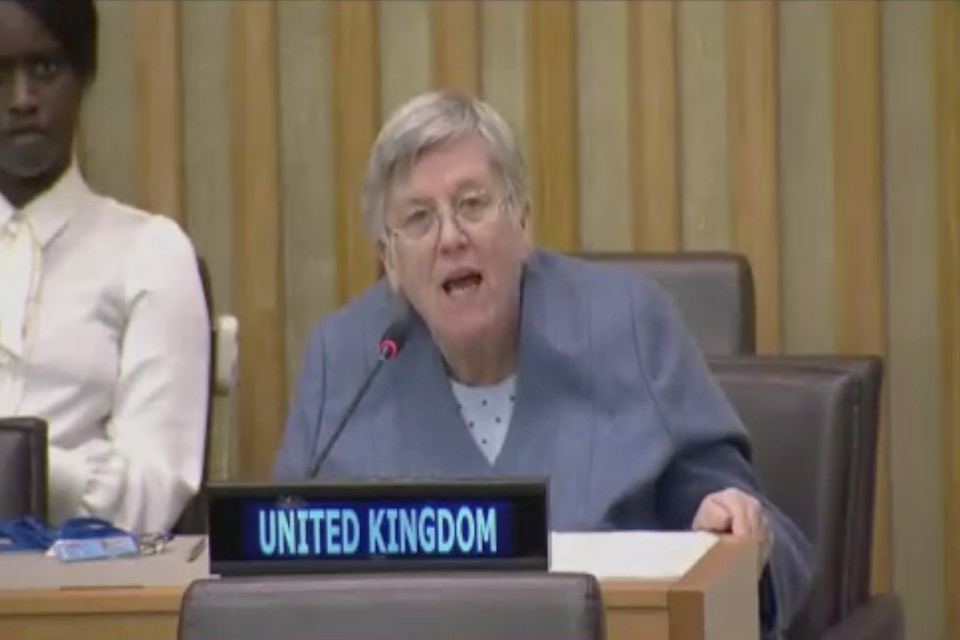UK's commitment to the rights of women and girls: National Statement to the UN Commission on the Status of Women
Statement by Baroness Deborah Stedman-Scott, Minister for Women at the 66th UN Commission on the Status of Women.

Madam Chair,
I want to begin my statement by addressing the situation in Ukraine.
Russia’s assault on Ukraine is an unprovoked, premeditated attack against a sovereign democratic state.
The UK and our international partners stand united in condemning the Russian government’s reprehensible actions, which are an egregious violation of international law and the UN Charter.
Russia’s actions should concern everyone at the Commission on the Status of Women. This war of choice will set back human rights and gender equality. As UN Women have said, we know the conflict will affect women and girls differently and disproportionately. A majority of the already 1.5 million refugees are women and girls. Women and girls will be more exposed to the risk of violence, particularly sexual and gender-based violence. We acknowledge the vital work of civil society organisations on the ground in Ukraine; and I am proud that on International Women’s Day, we launched new funding for women’s rights organisations and civil society actors working to support the critical needs of women and children both inside and displaced outside of Ukraine.
The UK is committed to preventing sexual violence in conflict, and we are exploring options for strengthening the international consensus on tackling this vital issue.
Madam Chair
Please, allow me to make three points on this year’s priority theme.
First, the UK remains steadfast in our commitment to using our COP Presidency to advance gender equality and social inclusion in climate action and finance. This means strengthening implementation of the UNFCCC Gender Action Plan, in line with the Glasgow Climate Pact; and supporting the climate leadership of women, girls and marginalised people, while building their resilience to climate impacts. We were delighted that so many governments and other actors came forward - in the run-up to COP26 and at COP26 itself - with commitments to deliver gender-responsive climate policies, programmes and actions. We continue to call on others to do the same.
Second, as we recover from the pandemic, we must reflect on both the new and existing challenges that women and girls have faced.
It is the responsibility of governments, like mine, to take steps to provide the support that women need to recover - in terms of their health, their economic situation and their well-being.
We have launched a range of programmes to support women to build back better, and I am pleased that I have been able to speak about these initiatives during CSW.
My government’s priorities include going further still on pay transparency, increasing our support for women entrepreneurs, and identifying ways to get more women into STEM careers.
And third, we look forward to achieving consensus on an ambitious and progressive outcome document that truly delivers for women and girls. We will approach negotiations positively and constructively, with a view to agreeing a text that clearly sets out the issues that climate change causes for women and girls, and the steps that we must all take to tackle it.
We call on all member states to do the same.
We stand ready to work with you.